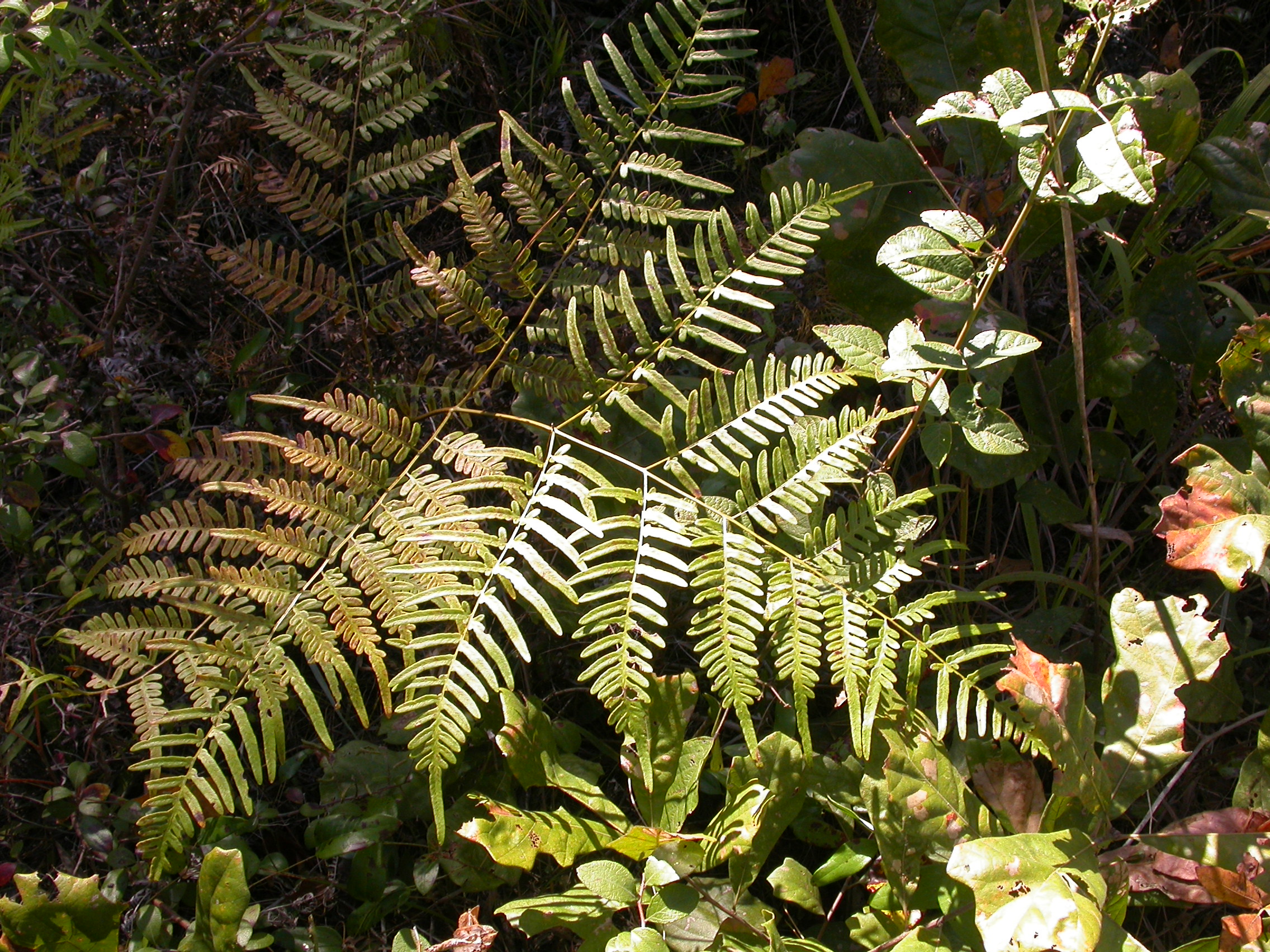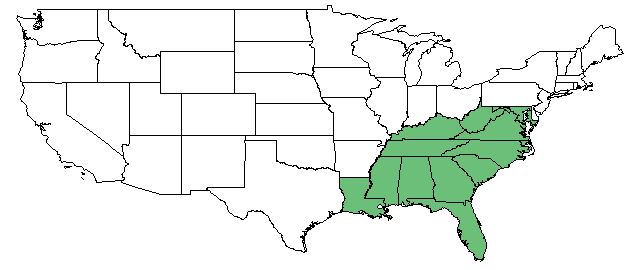Difference between revisions of "Pteridium latiusculum"
(→Cultural use) |
|||
| Line 46: | Line 46: | ||
==Cultural use== | ==Cultural use== | ||
| + | If harvested when immature, the shoots can be prepared as a green much like asparagus.<ref> Mueschner, W.C. 1957. Poisonous Plants of the United States. The Macmillan Company, New York.</ref> | ||
| + | |||
==Photo Gallery== | ==Photo Gallery== | ||
<gallery widths=180px> | <gallery widths=180px> | ||
</gallery> | </gallery> | ||
==References and notes== | ==References and notes== | ||
Revision as of 12:31, 10 June 2021
Common names: western brackenfern
| Pteridium latiusculum | |
|---|---|

| |
| Photo by Kevin Robertson | |
| Scientific classification | |
| Kingdom: | Plantae |
| Division: | Pteridophyta |
| Class: | Filicopsida |
| Order: | Polypodiales |
| Family: | Dennstaedtiaceae |
| Genus: | Pteridium latiusculum |
| Species: | P. latiusculum |
| Binomial name | |
| Pteridium latiusculum (Desvaux) Hieronymus | |

| |
| Natural range of Pteridium latiusculim from Weakley. [1] | |
Contents
Taxonomic Notes
Subspecies: Pteridium aquilinum (L.) Kuhn ssp. latiusculum
Varieties: Pteridium latiusculum (Desvaux) Hieronymus ex Fries var. latiusculum, Pteridium latiusculum (Desvaux) Hieronymus ex Fries var. pseudocaudatum (Clute) Maxon, Pteris latiuscula Desvaux var. latiuscula
Description
P. latiusculum is a native perennial forb that is a member of the Dennstaedtiaceae family.[2] It has short rootstalks that run horizontally up to a meter. The stalks are terminated by the leaf fronds that are broadly triangular in shape. The plants spread by spores or by the branching rootstalks.[3]
Distribution
The species is native to the southeast United States gulf coastal plain region, ranging from Louisiana and Kentucky to Maryland.[2]
Ecology
Habitat
The species is naturally found in dry woodlands, forests, and heath balds, up to 1600 meters in elevation.[4] It prefers dry, sandy or gravelly soils, and as a result is often found in abandoned fields and pastures.[5]
Use by animals
Wild hogs will dig up and eat the roots of the ferns, but the plant is poisonous in large amounts to most other livestock.[6]
Conservation, cultivation, and restoration
Cultural use
If harvested when immature, the shoots can be prepared as a green much like asparagus.[7]
Photo Gallery
References and notes
- ↑ Weakley, Alan S. 2015. Flora of the Southern and Mid-Atlantic States: Working Draft of 21 May 2015. University of North Carolina, Chapel Hill, North Carolina. 1320 pp.
- ↑ 2.0 2.1 USDA Plants Database URL: https://plants.usda.gov/core/profile?symbol=PTAQL
- ↑ Mueschner, W.C. 1957. Poisonous Plants of the United States. The Macmillan Company, New York.
- ↑ Weakley, A. S. (2015). Flora of the Southern and Mid-Atlantic States. Chapel Hill, NC, University of North Carolina Herbarium.
- ↑ Mueschner, W.C. 1957. Poisonous Plants of the United States. The Macmillan Company, New York.
- ↑ Mueschner, W.C. 1957. Poisonous Plants of the United States. The Macmillan Company, New York.
- ↑ Mueschner, W.C. 1957. Poisonous Plants of the United States. The Macmillan Company, New York.